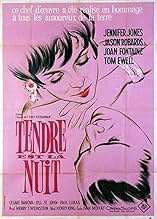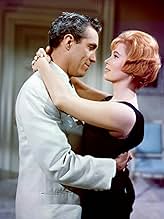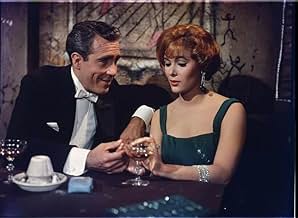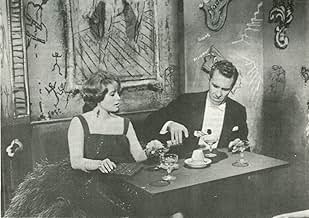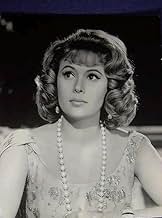The great 20th century American novelists all created books that were difficult to transfer to the big screen successfully. Hollywood had better luck adapting the short stories of Faulkner and Hemingway to the motion picture medium than with their master works. Fitzgerald was no exception. None of his masterpieces was a total success when rewritten as screenplays, even when directed by such skilled artisans as Henry King. Only John Steinbeck's works were ready-made for media exchanges. But who would place him on the same creative sphere as Faulkner, Hemingway, and Fitzgerald? "Tender is the Night" has its moments of greatness, in particular toward the end and who can fault the acting of such a stellar cast.
One distraction for this viewer was the failure of the director and cinematographer to capture on film the essence of The Jazz Age the way Fitzgerald did in his novel. This version of "Tender is the Night" has the 1960's written all over it from the clothes worn to a jet-set aura rather than the Lost Generation expatriate ambiance of the Fitzgerald masterpiece. Even the music is more 1930's swing than 1920's jazz. The only saving grace in the music department is the original score provided by virtuoso composer Bernard Herrmann.
All that remains of Fitzgerald is the bare bones story of the cosmopolitan Divers, focusing on Dr. Dick Diver, played with élan by Jason Robards Jr, a psychiatrist, married to Nicole (Jennifer Jones), who has suffered a mental breakdown. The good doctor becomes both a husband and an analyst to his mentally unbalanced spouse. On the French Riviera just before the stock market crash of 1929, Dr. Diver, near middle age, meets and falls for a rising starlet, Rosemary Hoyt (Jill St. John). As the plot thickens, Dr. Diver slides into a maelstrom of drunken escapades until he hits rock bottom. The story somewhat parallels Fitzgerald and his wife Zelda's own experiences, though Fitzgerald claimed it was based on friends Gerald and Sara Murphy's struggles.
By all means read the novel before watching this screen adaptation. I recommend the film only as a supplement to the book, perhaps Fitzgerald's best work.




